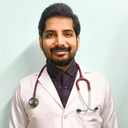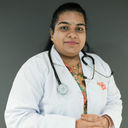Winter Diarrhoea: Causes & Treatment
Learn about winter diarrhoea, its causes, symptoms, and effective treatments. Discover prevention tips, rehydration strategies, and when to seek medical help for dehydration.

Written by Dr.Sonia Bhatt
Last updated on 3rd Jul, 2025

Introduction
You can never be entirely sure where you might pick up the viruses or bacteria that lead to diarrhoea. While it’s widely known that diarrhoea is more common in the summer and monsoon seasons, it can also occur in winter. Generally, diarrhoea is caused by parasites, bacteria, viruses, lactose intolerance, or other digestive issues. In warmer months, bacterial infections are more frequent, whereas in winter and dry periods, rotavirus tends to be more common and can affect both children and adults. Symptoms in children are often more severe than in adults, and experts consider rotavirus a seasonal infection.
Diarrhoea linked to the cold and dry winter months can pose serious risks, and pinpointing the exact cause can be difficult. It’s essential not to confuse these symptoms with those of typical viral infections, as this may result in an incorrect diagnosis. Key symptoms of winter-related diarrhoea include fever, loose stools, and abdominal pain.
What Is Diarrhoea and What Causes It?
Diarrhoea is characterised by frequent soft or loose bowel movements. It's common in children and usually resolves quickly.
Typically caused by gastroenteritis, diarrhoea may lead to crampy abdominal pain and lasts about 3 to 5 days. Other symptoms can include:
Fever
Loss of appetite
Nausea
Vomiting
Weight loss
Dehydration
If diarrhoea persists beyond a couple of weeks, symptoms may vary based on the underlying cause.
1. Common Causes of Diarrhoea
Diarrhoea is caused by:
Viruses: The most common cause. Viral gastroenteritis, or "stomach flu," lasts a few days and may lead to dehydration.
Rotavirus: Common in infants and young children, especially in winter. Vaccination provides protection.
Norovirus: Spread through contaminated food and water.
Bacteria: Includes E. coli, Salmonella, Campylobacter, and Shigella, often linked to food poisoning.
Parasites: Giardia is a common parasitic cause of diarrhoea in children, especially in childcare settings.
2. Other Causes
Diarrhoea may also arise from:
Excessive juice or sugary drinks (often called "toddler’s diarrhoea")
Food allergies
Lactose intolerance
Antibiotic use
Medical conditions like celiac disease and inflammatory bowel disease.
Symptoms of Diarrhoea
Symptoms generally appear about 2 days after exposure to the virus, with vomiting and watery diarrhoea lasting anywhere from 3 to 8 days.
Severe watery diarrhoea
Vomiting
Fever
Abdominal pain
Alongside these symptoms, individuals may also experience a reduced appetite and dehydration, which can be particularly serious for infants and young children. Signs of dehydration include:
Decreased urination
Dry mouth and throat
Dizziness when standing
Crying with few or no tears
Unusual drowsiness or fussiness
Diagnosis of Diarrhoea
Your healthcare provider will typically begin by discussing your medical history, reviewing any medications you are currently taking, and performing a physical examination. They may also conduct tests to determine the cause of your diarrhoea. Possible tests include:
Blood Tests: A complete blood count, along with electrolyte levels and kidney function tests, can help assess the severity of your condition.
Stool Test: A stool sample may be examined to identify any bacteria or parasites responsible for your diarrhoea.
Hydrogen Breath Test: This test can indicate lactose intolerance. After drinking a lactose-rich solution, your breath is measured for hydrogen at regular intervals. High levels of hydrogen suggest that your body is not fully digesting and absorbing lactose.
Flexible Sigmoidoscopy or Colonoscopy: A thin, lighted tube is inserted into the rectum to allow the healthcare professional to view the colon's interior. This tool can also take small tissue samples (biopsies). A flexible sigmoidoscopy focuses on the lower colon, while a colonoscopy examines the entire colon.
Upper Endoscopy: A long, thin tube with a camera is used to inspect the stomach and upper small intestine, and a tissue sample may be collected for laboratory analysis.
Treatment Options for Diarrhoea
Diarrhoea caused by bacteria or parasites can often be treated with antibiotics or anti-parasitic medications. However, if a virus is the cause, antibiotics will not be effective.
Your doctor will likely recommend replenishing lost fluids and salts. This can be done by drinking options like juice, broth, or electrolyte solutions. If consuming liquids is uncomfortable or leads to vomiting, your healthcare provider may suggest intravenous (IV) fluids. While water is essential for rehydration, it does not contain the necessary salts and electrolytes, such as sodium and potassium, that your body needs. Soups can help restore salt levels, and fruit drinks can provide potassium, but be careful, as some fruit juices, such as apple juice, may exacerbate diarrhoea. For children, discussing the use of oral rehydration solutions is important to prevent dehydration.
If an antibiotic is identified as the cause of your diarrhoea, your doctor may change the dosage or prescribe a different medication. They will also investigate any underlying conditions that may be contributing to the problem and initiate appropriate treatment.
To avoid dehydration, it’s crucial to drink plenty of fluids. Oral rehydration solutions are available over the counter at pharmacies and can be particularly beneficial for mild dehydration.
Seek Medical Care for Severe Dehydration
In cases of severe dehydration, hospitalisation may be necessary for treatment with intravenous (IV) fluids administered directly. If you or someone you are caring for shows signs of severe dehydration, it’s important to contact a doctor promptly. Infants, young children, older adults, and those with pre-existing health conditions are particularly vulnerable to dehydration.
Prevention Strategies against Diarrhoea
Preventing diarrhoea and other gastrointestinal illnesses involves adopting good hygiene practices, making mindful dietary choices, and maintaining a healthy lifestyle. Implementing these strategies can help reduce the risk of infections and support overall health.
Regularly clean and sanitise surfaces in your home, particularly those frequently touched by children.
Always wash your hands thoroughly before meals.
Avoid eating food from outside sources, as it may be contaminated.
Steer clear of drinking water from unreliable sources.
Consume a nutrient-rich diet to maintain energy and health.
Incorporate daily exercise to keep your body and immune system functioning well.
Start your day with a glass of lukewarm water first thing in the morning.
Stay hydrated by drinking plenty of water daily.
Improve your water by adding a pinch of rock salt and some lemon juice.
Include citrus fruits in your diet for additional vitamins and minerals.
Complications of Diarrhoea and When to Seek Immediate Help
Severe dehydration may require intravenous (IV) fluid therapy. If any of the following signs are seen, it is important to seek medical attention right away:
Difficulty drinking fluids due to nausea
Dry lips and mouth resulting from dehydration
Unusual paleness and lack of energy
Absence of tears when crying
Infrequent urination or urine that is dark in colour
Managing Winter Diarrhoea in Children
Symptoms normally resolve on their own in mild cases. Antibiotics are ineffective for viral infections and may worsen diarrhoea.
Ensure your child gets plenty of rest.
Offer regular foods; if vomiting occurs, wait a few hours before retrying.
Avoid red-coloured foods or drinks that may resemble blood.
Do not use over-the-counter medications to stop diarrhoea or vomiting.
Monitor temperature with a clean digital thermometer.
For Dehydration:
Continue breastfeeding or formula for infants; offer milk for toddlers and older children—water alone is insufficient.
Encourage small sips of fluids throughout the day, avoiding fruit juices or sugary drinks.
Use an oral rehydration solution (ORS) to replace electrolytes and fluids:
Available in liquid or powder forms at pharmacies; generic brands are effective.
Consult your healthcare provider for the appropriate dosage based on weight; do not dilute or mix with formula.
Offer additional fluids alongside the ORS, but don’t rely solely on it for more than 6 hours.
Avoid sports drinks or home remedies instead of ORS, as they lack the correct electrolyte balance.
Conclusion
Diarrhoea in the cold, dry winter months can be serious, and pinpointing its cause may be difficult. It’s vital to differentiate these symptoms from those of typical viral infections to avoid misdiagnosis. Diarrhoea disrupts normal bodily functions and can lead to discomfort. While it often resolves within a few days, persistent or severe symptoms should prompt a visit to your healthcare provider. Remember, diarrhoea is common, and your provider can offer effective solutions for relief.
Consult Top General Physicians
Consult Top General Physicians

Dr. Suraja Nutulapati
General Physician/ Internal Medicine Specialist
10 Years • MBBS, MD (Internal Medicine)
Hyderabad
Apollo 24|7 Clinic, Hyderabad
(850+ Patients)

Dr. Hrishikesh Shivakumar
General Physician/ Internal Medicine Specialist
9 Years • MBBS, MD
Bangalore
Apollo 24|7 Clinic - Karnataka, Bangalore

Dr. Siri Nallapu
General Practitioner
5 Years • MBBS
Hyderabad
Apollo 24|7 Clinic, Hyderabad

Dr. Mohammed Huzef Ul Arifeen
General Practitioner
3 Years • MBBS
Hyderabad
Apollo 24|7 Clinic - Telangana, Hyderabad

Dr Divya Lekha Gunta
General Practitioner
10 Years • MBBS, MD (Pathology)
Visakhapatnam
Apollo 24|7 Clinic - Andhra Pradesh, Visakhapatnam
